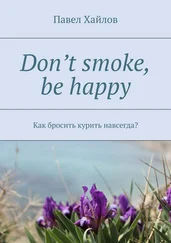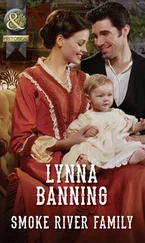“Until the New Year.”
“But she said I could—”
“Spring, then. You are excused now.”
There is a sequence to what follows. The Smoke comes first, a sudden little plume that rises from the servant girl’s chest and leaves a smudge in the starched cotton. Then tears start running, clear and silent, from dark eyes to chin. A sob follows, starts in the depth of her and shakes her frame. Next she flees, all grace forgotten, the sound of her flat shoes travelling through the closing door.
“My apologies. Miss Livia Naylor. Mr. Argyle, I presume? And Mr. Cooper. How do you do? We were expecting you last night. It is, of course, long past our breakfast time. Never mind, here comes the food. Sit. I shall keep you company.”
ф
They sit and eat under her scrutiny. Her gaze is all the more disconcerting for being patient, judicious, meek. Charlie finds it turns the toast to ashes in his mouth and the tea to bilge water. A well-brought-up boy, he forces himself to make conversation.
“Thank you for welcoming us so kindly, Miss Naylor. Will your father — the baron — will he be joining us this morning?”
But the girl gives him no help. “I am instructed to tell you he is unwell.”
“That’s too bad. Your mother then?”
“She has ridden out.”
Charlie feels rebuffed but is not ready yet to admit defeat. He adds with an increasing air of desperation: “I assume you’re home from school. Just like us. Not that we are at home, of course. But all the same. .”
She waits attentively, patiently for him to finish, but he no longer knows where he is going, is hiding behind his cup of tea, appalled at the noise he makes when he tries to take a quiet sip.
Thomas rescues him.
“You are not a prefect, by any chance?” he asks, his mouth full, a dangerous note to his question. “Back at your school?”
She meets his eyes calmly. “I have that good fortune. How did you guess?”
They cannot help themselves. Both boys start to giggle, furtively at first, then, their frames shaking, with blushing abandon, while she watches on, calm and meek and disapproving, until their hysteria dries out along with their appetites, and the butler reappears to see them to their room.
ф
“We’ll have an early dinner at five.”
These were Livia’s parting words. The only thing of substance that the butler added to their stock of information was the location of the bathroom, right across from the room in which they have been housed, and the exhortation that they “may feel more comfortable once they have had a moment to refresh themselves,” which Charlie takes to mean they stink. The room is prettily but sparsely furnished. It holds two beds, a press, and a little desk and chair. They remain on the ground floor; a large veranda door grants access to the gardens. The clock shows a quarter to eleven. When Charlie returns at eleven twenty from his bath, he finds Thomas at the open veranda door, watching a pheasant striding up and down the garden path. He leans out, into the pouring rain, and Charlie hears him count the windows along their wing of the house. He breaks off after three dozen, turns, his hair wet and his face streaming with rain.
“Is your house like this, Charlie?” He points for some reason at the marching pheasant who is on yet another of his rounds.
Charlie thinks about it.
“You mean this big, with gardens like that? Yes, I suppose it is. Grander, even.” He shrugs. “How about yours?”
“More like that.”
It takes Charlie a moment to see the garden shed through the sheets of rain, standing with its back to the dark treeline beyond.
“Do you miss it? Home?”
Thomas’s eyes turn hard. “No.” He gathers up a dressing gown and towel. “My turn for a bath.”
ф
Their afternoon passes turgidly. Five seems an eternity away. The rain continues unabated, making exploration of the garden impossible. When they step into the corridor instead, they find most of the doors closed, the house all but abandoned. It seems rude to climb stairs and look around in earnest, and after running into the hard stare of the butler at what appears to be the stairwell down to the servants’ quarters, they retreat, watch the clock move in painfully slow spasms. At three thirty they change into their formal attire. It is only now they realise they have forgotten to hang their clothes or ask someone to press them, and their shirts and jackets look hopelessly rumpled. Thomas’s dinner jacket is not only cut according to some long-abandoned fashion but appears to have been attacked by moths. The cloth underneath the left arm is all but worn away. This leads him to walk around awkwardly, pressing one elbow into his flank so as to hide the bald spot. When the clock hand finally twitches onto five, their nerves are exhausted with boredom. At three minutes past, the fear takes hold that nobody will come to collect them.
“We could ring for a servant,” Charlie suggests.
“ She might come. Tell us off.”
“ She doesn’t seem the type to answer bells. Maybe the other girl will come.”
“The one with the big—”
Thomas is stopped short by a knock on the door.
“Dinner,” says the voice of the butler. “Lady Naylor is waiting.”
ф
Lady Naylor is resplendent in a floor-length evening gown of velvet and silk. She gets up from a chair when they enter, shakes their hands, gives Thomas an odd searching look. Charlie does not know how to gauge his friend’s reaction: a thoughtfulness comes over Thomas that is not quite recognition. He takes his seat at the large, formal dinner table with a frown on his brow. Charlie sits across, separated by four feet of starched damask. Rows of cutlery five-deep flank their china plates.
“I trust you had a pleasant journey.”
The boys look at each other. Both remember the coachman’s waiting room with its unheated floor; the anxious look of their driver as he explained there was no inn.
“Very pleasant,” they say, almost in unison.
“I am pleased.”
Miss Naylor enters. She is wearing the same nunnish dress she wore at the breakfast table, though she has added a string of pearls. The boys rise, somewhat clumsily, dropping napkins, until she has taken her seat across from her mother. Right away a servant appears carrying a terrine of soup.
“Please,” Lady Naylor says, after a perfunctory grace, “begin. We don’t stand on formality here.” The smile she flashes highlights the absurdity of the claim. Her daughter scowls and spoons the soup with such noiseless precision that Charlie, sitting next to her, feels like a pig at the trough.
“I trust your parents are well, Mr. Cooper.”
“Very well, thank you.”
“It is generous of them to share you with us in this festive season.”
Charlie blushes. “Not at all.”
“Livia, you forgot to mention to me what a perfectly charming young gentleman Mr. Cooper is. And Mr. Argyle, too, of course.” She flashes another smile, subtle and naughty. “Her report, I must tell you, was rather libellous.”
“Mother! I really must insist that you don’t lie.” A flush of colour has entered the girl’s cheek.
“See how we live here,” her mother appeals to her guests. “Under the heavy thumb of a prude.”
ф
Dinner is interminable. The soup is followed by jellied tongue, followed by duck in red wine sauce, then roast pork and parsnips, plum pudding, cheese, and coffee. For all Lady Naylor’s charm, she is unable to draw more than half a dozen words out of her guests. Even her daughter refuses to be drawn into extended skirmishes. She checks herself at several points and accepts her mother’s barbs with the patience of the martyr. Charlie watches them all very closely: Thomas, awkward in his moth-worn jacket, eating little, chewing over some thought; Livia, thin, pretty, embarrassed by and for her mother; and Lady Naylor, a well-kept woman of forty, her hair piled high above her mobile, made-up face, the thin lips thickened by a rich hue of lipstick. She is speaking to him, Charlie, mostly; seems less interested in Thomas. Only now and again her eyes steal over to him, an odd sort of question in her gaze. It busies Charlie so much, this gaze, he too nearly forgets to eat.
Читать дальше












